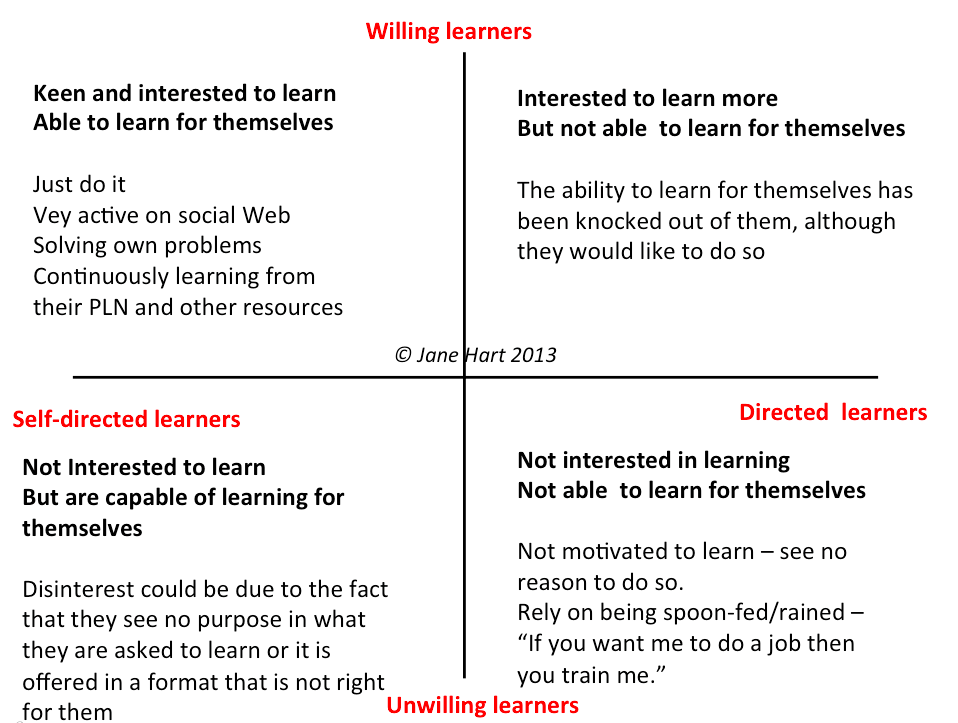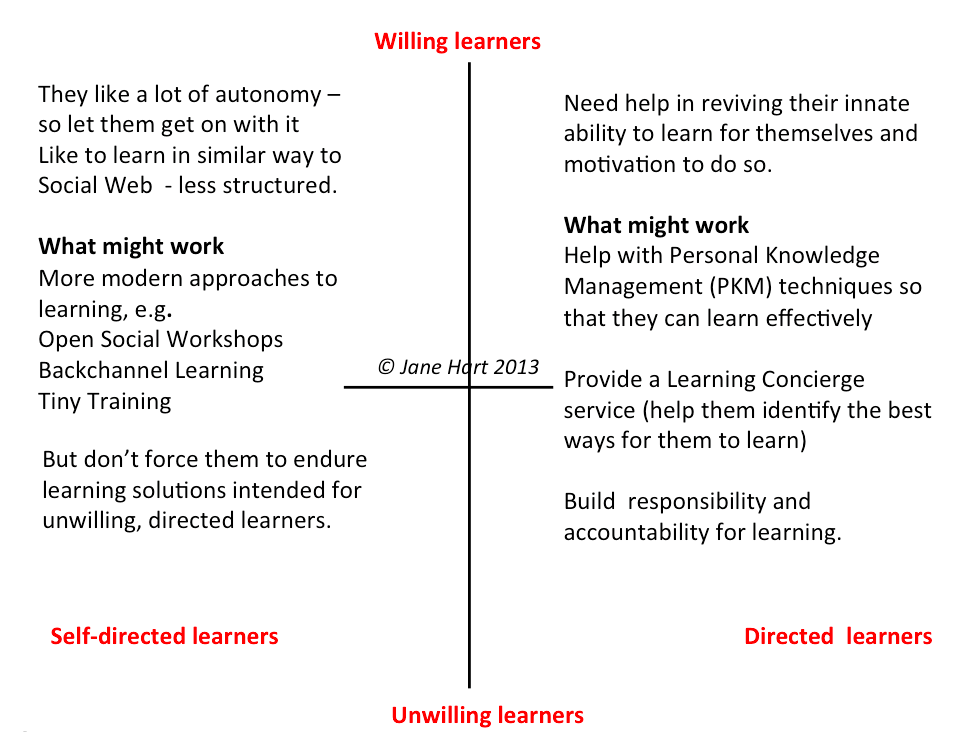I came upon a very relevant blog post from Jane Hart (one of
the sources I use in my “Learning Organization” PLN): How do we deal with unwilling corporate learners?
Hart, whose blog posts often contain quite informative
visuals, notes that people who are independent (willing) learners will learn regardless
of teaching methodology. Unwilling learners, on the other hand, expect to be
taught. Since instructional designers and trainers try to motivate the unwilling,
their methods often frustrate their more willing classmates. She also observes
that there are those who are willing to learn but don’t know how to learn
independently. What they need is direction - “help to revive their innate
ability to learn.” Finally Hart notes that unwilling, traditional (directed)
learners need help in becoming self-directed, finding suitable learning styles,
and help in taking responsibility and accountability for their own learning. [There
is a lesson for teachers in Hart’s message: one size cannot fit all learners.]
 |
| Learner Characteristics http://www.c4lpt.co.uk/blog/wp-content/uploads/2013/09/Screen-Shot-2013-09-22-at-09.26.22.png |
What Learners Need
Sharon Boller, a well-respected instructional design guru,
notes in her response to Hart’s blog the importance of creating a “self-directed
environment.” She also observes that “information overload is not conducive to
a self-directed approach to learning.” On the corporate side, she perceives “The
luxury of time is an essential ingredient to a self-directed learning approach.
You need time to explore, time to make some mistakes, time to reflect on what
it is you are learning. Corporate America is very short on time. Hence, I think
we’ve evolved directed approaches to learning that try to minimize the time
required for people to learn…. I also think we do a poor job in corporate
American at distinguishing what we truly need for people to learn to do and
what we simply want them to be able to find/locate as they need it. So we
create overly elaborate learning solutions for things that we don’t really
intend for people to remember and under-cut the learning situations that need
to be far more robust for people to truly gain skill or in-depth knowledge.”
The moral of this story for teachers is to focus on problem-solving, rather than on facts that can be referenced when needed.
Source: Hart, Jane. "How do we deal with unwilling
corporate learners?." Learning in the Social Workplace. N.p., 22
Sept. 2013 Web. 22 Sept. 2013.
<http://www.c4lpt.co.uk/blog/2013/09/22/how-do-we-deal-with-unwilling-corporate-learners/>.

No comments:
Post a Comment